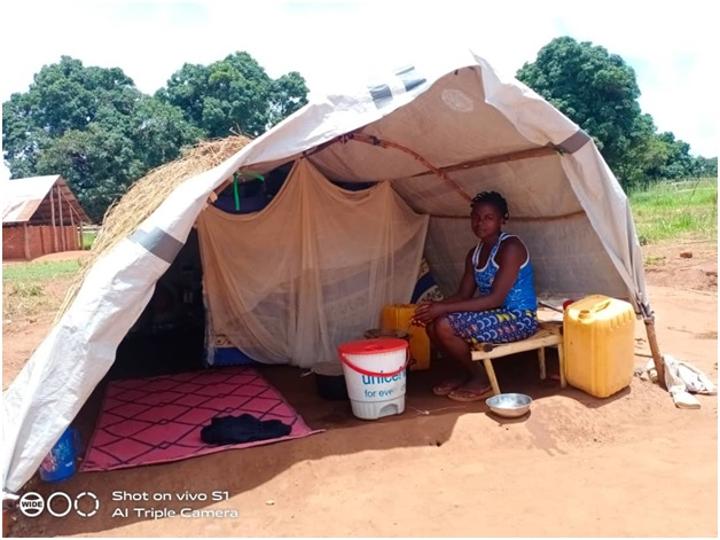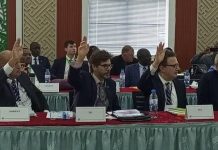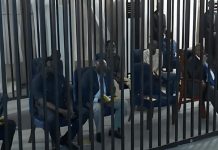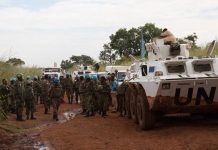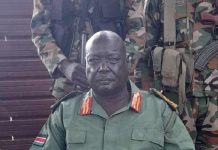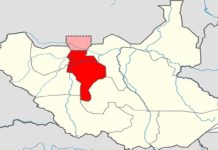Africa-Press – South-Sudan. “There are so many children, women, andelderly persons, who had walked for days in the bush to escape the fighting in Tamburacounty,” said Joseph Andrea Adiomo, emergency specialist in UNICEF.
The ongoing fighting in Tambura of WesternEquatoria state has displaced over 90,000 people, who witnessed horrificviolence and fled with little more than the clothes they were wearing.
Children were exposed to high child rightsviolations. Small children had to walk weeks fleeing the violence in theirvillages to reach safety in Ezo. Other children as young as 13years were forcedto stay in Tambura. They were at risk of being enrolled by the armed groups. Girlswere exposed to sexual violence. Many children have been separated from theirfamilies.
As part of UNICEF’s response to the crisisand the humanitarian needs, Joseph led a Rapid Response Mission to Ezo whereover 20,000 internally displaced persons were living in make-shift camps andsharing already strained resources with the host communities.
The Rapid Response Missions supported byUNICEF, WFP and partners was a lifeline that could quickly provide urgentlyneeded humanitarian assistance for displaced populations who were underconstant threat from hunger, disease and violence. Many have no access to cleandrinking water, shelter or basic health facilities, exposing them to risk ofdiseases that including diarrhoea andmalaria, which could prove deadly if leftuntreated.
During his mission Joseph,was joined by UNICEFstaff and partners specialised in health, nutrition, child protection,educationas well aswater and sanitation. Two UNICEF trucks carrying 40 metric tonnes ofhumanitarian supplies such as vaccines, medicines, and therapeutic foods totreat malnutrition among childrenaccompanied them.
During the weekslong mission to Ezo, Josephand his team distributed2,000 mosquito nets, vaccinated 4,282 childrenbetween 6 months to 15 years against measles and 4,813 children under 15against polio, screened3,400 children under-5 formalnutrition, distributed2,000 bars soaps, and rehabilitatedtwo boreholes fordrinking water. Education material were provided to five schools.
With the help of its partner CCMB, UNICEFhad begun identifying children separated from their families and provided thempsychosocial support to mitigate the trauma they have been through.
“Among the internally displaced persons, weidentified 153 unaccompanied children and children separated from their families.Someare as young as five years old,” said Joseph. UNICEF and CCMB wouldassist these childrenin need while looking for their relatives and planning for the reunification withtheirfamily.
Joseph’s mission was one of the mostthat UNICEFand partners were undertaking to support populations affected by conflict. The RapidResponse Missions required complex multi-sectoral planning andface many logisticalissues due to the lack of proper roadsand high levels of insecurityoftencrossing frontlines.
“These are the times when UNICEF and partnersmust go the extra mile and deliver life-saving support. Our strength is notjust the supplies we provide, but also the commitment of our staff to reach themost vulnerable children and women in South Sudan,” said Hamida Ramadhani,UNICEF Representative in South Sudan.
The crises in Tambura came amidst analready alarming humanitarian situation in South Sudan. Since the start of the year, more than 4.5million children were reported in need of humanitarian assistance. This year,1.4million children were expected to be affected by malnutrition.
While UNICEF and partners called all the conflicting parties to ceasehostilities and for the violence to end, humanitarian agencieswould continue toreach remote communities, providing lifesaving servicesand establish or reopenhumanitarian services to communities who are without access to food,healthcare, nutrition, education, and clean water.
UNICEF thanked donors such as GAVI, GPE,CDC, USAID-BHA, European Union, European Humanitarian Aid (ECHO), SIDA, and theUS State Dept; along with The People’s Republic of China, Republic of Korea,and the Governments of Germany, Japan, and the United Kingdom who weresupporting the Humanitarian Action for Children (HAC) appeal in South Sudan.
For More News And Analysis About South-Sudan Follow Africa-Press

